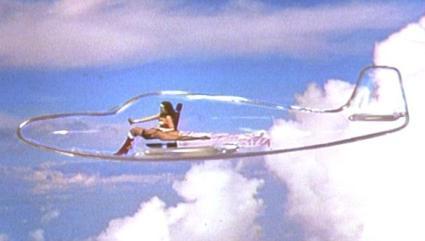She's not Artemis. DC Comics classical mythology is adjacent to, but not exactly the same as, actual Greek and Roman mythology. The Amazons are a mishmash of Greek and Roman stuff (no Skythians?) on Themyskira, which is an island. Zeus is more or less a Good Guy god instead of a lazy, rapacious douchebag; Ares is an actual threat to people instead of a whiny, wimpy wuss. Wonder Woman/Diana has like three or four different origin stories at this point, which range from halfway decent to rapey and gross.
Also, the only funny moment in
Batman v. Superman Board of Education was when Diana was heading home from America on a Turkish Airlines flight.
Also Germany are the bad guys again

Okay, so. I adore Gal Gadot as Diana. I like her theme music. I like what they're doing with the character. I like having a major film being headlined by a competent actress with a good character to play. I love that it's set in the First World War, which is only, y'know, my primary focus as a student of history.
I can get behind the Central Powers being the bad guys of a Great War movie, especially by 1917 when Hindenburg and Ludendorff were in charge. It's a war movie. You gotta have good guys and bad guys. But I can't get behind the Central Powers being the bad guys of a
superhero movie. If the Central Powers are the bad guys, then by process of elimination the Entente Powers are the
good guys, because Diana is fighting on their side. Her character is a paragon of morality, unlike the normal focus of war movies on normal soldiers, but she's taking sides in a war where neither side had any sort of moral advantage over the other. The Entente Powers were inextricably tied to terrorism, to atrocities against civilians, to attacks on neutral countries that were every bit as bad as what the Central Powers were accused of. It's extremely disappointing to see an actual hero take that side.
I mean, look at how the Germans are portrayed in the trailer. The only one whose face you even see is that German general in the ballroom. Pretty much all you see of them is helmet, coat, and rifle. They are barely even human. Compare that to the scene of Entente infantry going over the top - those look like actual people.
At least in the original stories, Diana left Themyskira to fight Nazis. It's hard to impeach the basic morality of a hero going to war with the most evil regime in the history of the planet. Whatever atrocities the Allies committed during the war, and there were many, the Second World War at least had clear good guys and bad guys. As much as I like setting films in the First World War, which is an underutilized setting for fiction in my opinion, I would rather Diana be fighting in the Second World War (a definitely not underutilized setting) just so she'd be fighting an actual evil villain.
I hope that what actually happens in the film is that the Amazons go to war because of, say, an attack on Themyskira (there's a scene in there that kinda looks like Turks vs Amazons on Paradise Island) but then, after fighting alongside the Entente for awhile, Diana gets super disillusioned with just how awful both sides are and the Amazons return to isolation for a hundred years afterwards.
This is an issue that isn't as annoying to me as the length of the post might seem. It's one that takes awhile to explain, but it probably won't prevent me from actually seeing the movie or anything, because, hey, Wonder Woman.







